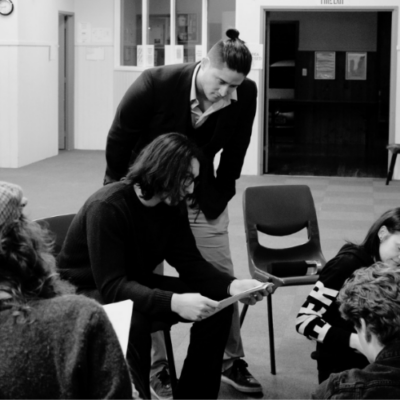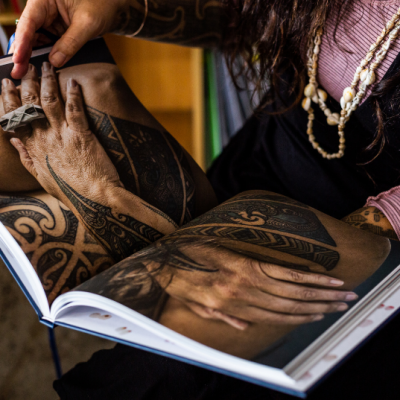Creative Patapatai
Harry Oram has a passion for storytelling, whether via screen, stage or song. As founder of Apex Academy of Performing Arts, he and the Apex team have created ten short films since January, and they’re not showing signs of slowing down. Read on to learn more about this actor, writer and director.
Your occupation, job title, artistic discipline (or very brief description of what you do):
Actor, writer and director. Founder and Artistic Director of Apex Academy of Performing Arts, a method acting-focused performing arts academy based in Tauranga.
What cities/towns have you lived in (or spent more than a few months in) beginning with the place of your birth?
I’m a 5th generation kiwi who’s been coming to the Mount since I was born. However I was born in Hong Kong, where my mother was also born; she is of Filipino / Spanish heritage. Growing up in Hong Kong, the home of Bruce Lee and Jackie Chan, I discovered a passion for Martial Arts and the arts in general, as I began life as a dancer and singer.
I was educated in England, in the west country – Somerset. Attending, at the time, the last all boys Catholic boarding school run by monks, Downside School, based just outside the city of Bath.
Our family moved then to just outside of Bristol, in England. I was given a singing scholarship there and, as part of our choir, asked to perform on two Classical CDs with the monks of the school (The Abbey and Gregorian Moods) that went to number 1 of the Classical charts in the UK.
We used to spend summers at our home in Lugano, Switerzland from a young age. I think having been given the opportunity to travel and meet with so many different cultures and peoples gave me a very international perspective from a young age. I went to university in Edinburgh to study Ancient History. At the Edinburgh fringe I began my pursuit of an acting career. I moved to London to continue my career. There I met Marianna Hill who became my mentor in Method acting. She encouraged me to move to New York to further my training in Method acting at the Lee Strasberg Film and Theatre Institute. So I moved to New York to study at Strasberg. In New York I gained confidence as an actor. I performed in many plays off-broadway and discovered my love for Shakespeare and the classics. In New York I also founded my first film company, “Bed of Flames Productions,” with my business partner, the very talented film maker, Rodrigo Lopez-Portillo.
Knowing I wanted my career to be in film – I moved to Los Angeles. I never knew where “home” was. One’s identity and “home” became a big curiosity for me.
Up to that point, I loved New York. New York: it felt like everyone was mixed or an immigrant, no one really cared where you were from – it was who you were, your values and what you wanted to do that mattered.
However in LA, that was the lifestyle I enjoyed the most. The weather. The pace. The energy. It was Hollywood, the centre of the film world. Unfortunately due to a con-man giving me a false visa, I had to leave LA after a year, and the conman went to jail. I ended up back with my family in Hong Kong, where my parents and sisters had returned, and still had a large part of my mother’s family. I made Hong Kong my home for a long time, working with the local film industry, with independent filmmakers and going over to China and elsewhere to make films. I founded an online magazine called Third Culture – all about that question of one’s identity – as well as the Third Culture Film Festival and Third Culture Theatricals. I was a patron of the Shakespeare in the Port, the city’s first outdoor Shakespeare festival.
Knowing my future wasn’t in Hong Kong for the long-term. I joined a Strasberg Alumni as his lead actor for his theatre group, Secret Theatre. We went on an Asian tour in Hong Kong and Singapore, before returning to London. London is where I was based before COVID. It was interesting being back in Europe after living in Asia. My younger sister was living in Barcelona and I loved visiting her as she was so close and the Spanish lifestyle so alluring. London offered a lot more opportunities in the film and theatre industry, however I still missed that California lifestyle and weather, and knew I might not necessarily stay in London long-term.
The dream destination to live, has always been New Zealand. It is what my sister’s and I always discussed when we were young. There were more opportunities elsewhere, but in terms of lifestyle, beauty, and feeling like “home”, NZ and the Mount still ranks number 1 to me. My parents have now retired at the Mount. So when COVID hit London, my lease was expiring on my apartment, and I figured, no better time to move to NZ than now. So here I am now, finally “home”, and keen to stay.
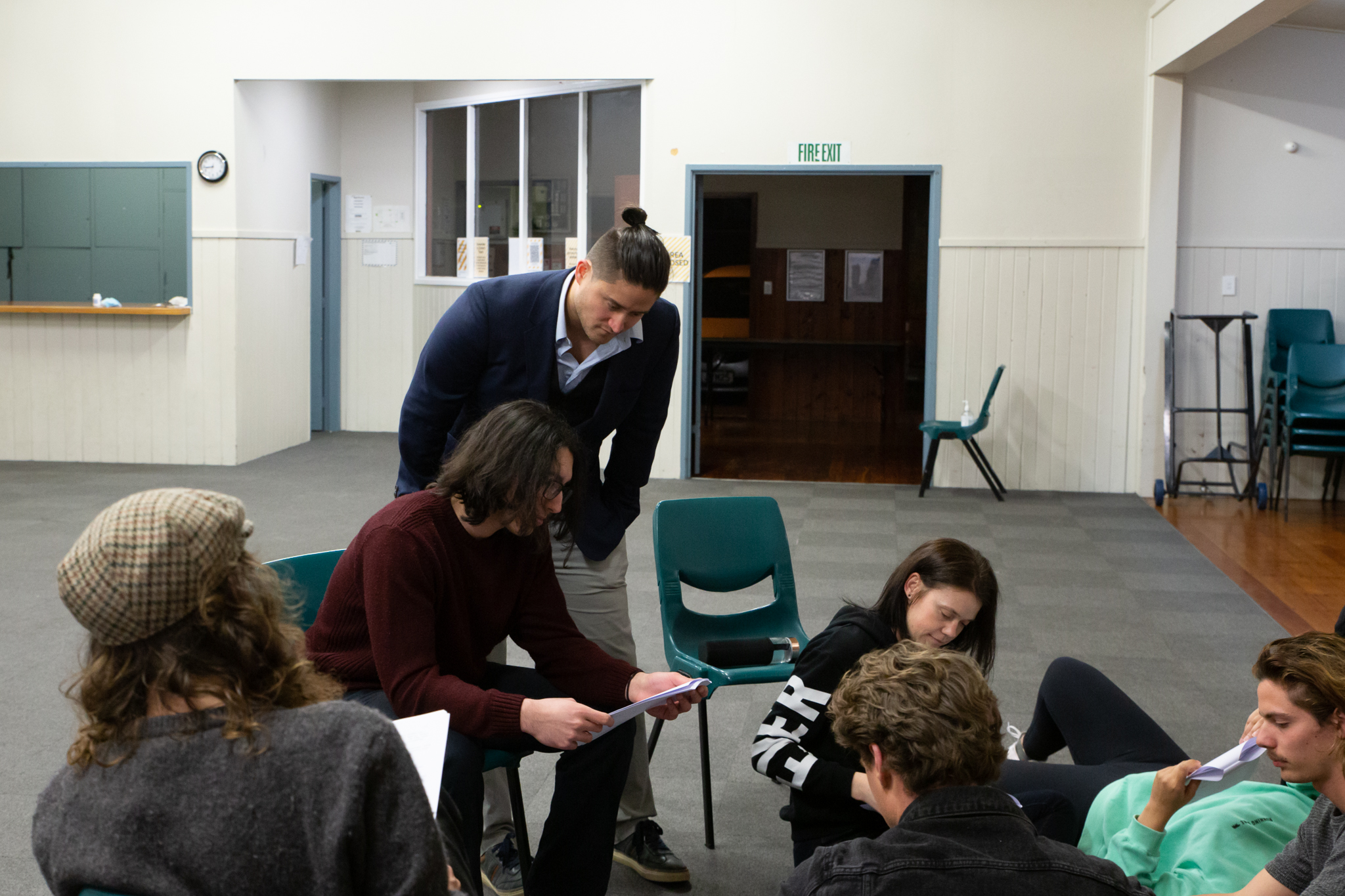
What are the earliest stories you remember hearing? The ones that told you about the world.
My father is a wonderful story teller. He and my mother used to do the dubbing for a lot of martial arts films in Hong Kong. He also had his own radio show with RTHK, so he’s got that powerful, resonant radio voice. He used to read bed-time stories to me often, and I think that’s where I began to fall in love with storytelling and a story being told well. I quickly realised that few things can grip your attention and captivate your imagination as a well-told story. They can inspire, move you, create and destroy, terrify you, humble you, make you laugh and cry… A good story can forever change your life.
What’s your favourite Bay of Plenty landscape, park, building, location, suburb, or side street? Why?
The Mount. It is one of my earliest memories. Walking up there, seeing the view. I have spent many hours sitting up the top contemplating my next move, mulling over big-life decisions. My grandfather has a bench round the Mount, and it is comforting to me to go sit there sometimes, especially when I feel alone, it allows me to feel connected to my ancestors and forces greater than me. The Mount always keeps me honest and humble.
What’s an average day in your life at present?
I am working on relaunching the Third Culture Film Festival here in Tauranga. I also have written / am writing a TV show and several screenplays that I hope to get made in this area – something I think that would benefit all the creatives here. Making films are a long-term project.
I also run MHO Endeavours which is a management company. As the company is new, we only have a few, select clients in various different industries.
In the school term I’m teaching classes at Apex after school hours. During the day I am working on ways to benefit the students and find ways in which their education can be enhanced or give them opportunities to showcase their talent.
Then, to keep a routine, I work on my own acting career and when the opportunity arises, I have to stay prepared.
How did Apex Academy come to fruition?
I have always kept in close contact with one of my mentors in New York, Mauricio Bustamante. We would jump on a video call whenever I had a challenge with a role and he would help me with it. He was one of those teachers that I deeply appreciated, for not just assisting me with my technique, but really believing in me and giving me the push I needed to go for it. When I first returned to the Mount, I wanted to share my acting experience and teach. When I discovered how many wonderful talented people there were in Tauranga, I was keen to support them in the best way I knew possible. With the assistance from Mauricio, we founded Apex not just to provide a quality education with a technique that is respected Internationally, but also opportunities to students who felt that maybe they were stuck here – that in order to have a career they’d have to move to Auckland or Wellington.
My mother is also a cofounder and the administrator for the Academy. She has a wealth of experience running companies in Hong Kong and working with my father. She was also keen to create something here in Tauranga that we could be proud of.
What is the kaupapa of your organisation?
As an actor myself, I understand the needs of an actor and what I wanted from my education. We believe in creating a space where talent can be free to experiment and explore their art and creativity – where they don’t feel judged or worry about their past, but can be present and so develop their future. We are an extremely diverse group that represents New Zealand’s wonderful diversity, already representing over 12 nationalities. Not only do we want to provide a quality education, we believe that the success of the organisation lies with the success of our students. So we are very keen to provide as much opportunity for them outside of class as well.
What music was present and still memorable from your youth/adolescence?
I have a very eclectic taste in music – depending on my mood. From my upbringing, I have a deep appreciation for classical music. I do love the ballet, the opera, and classical recitals. When I am writing, I enjoy classical music or jazz in the background.
Growing up with sisters, and as a choir boy, I loved things you can sing to. So yes, I still know all the words to the Backstreet Boys, Boys 2 Men, etc. With my parents, it was Lionel Richie, Diana Ross, the Beach Boys.
For you as a creative person, who are three influential artists or thinkers?
I have to credit Lee Strasberg first. The Method not only gave me a career – but it is also a technique that gives you an approach to life and deepens your appreciation.
Tony Robbins. As an entrepreneur and artist, he was extremely influential on me. Countless hours sitting on a train or bus, in the gym, with his voice in my head telling me to believe in myself.
Alan Watts. His philosophical approach to life was always very moving and inspiring for me. I think when you choose the path of an artist, you will immediately begin to question your values and the world’s values. You need to take a step back and look at your life and ask, what is it you want from it? What do you want to contribute? I think being able to meditate on these thoughts, discover what makes you happy, discover what inspires you and drives you – that kind of thinking is an abundant source of inspiration as it connects you to a divine power outside yourself.
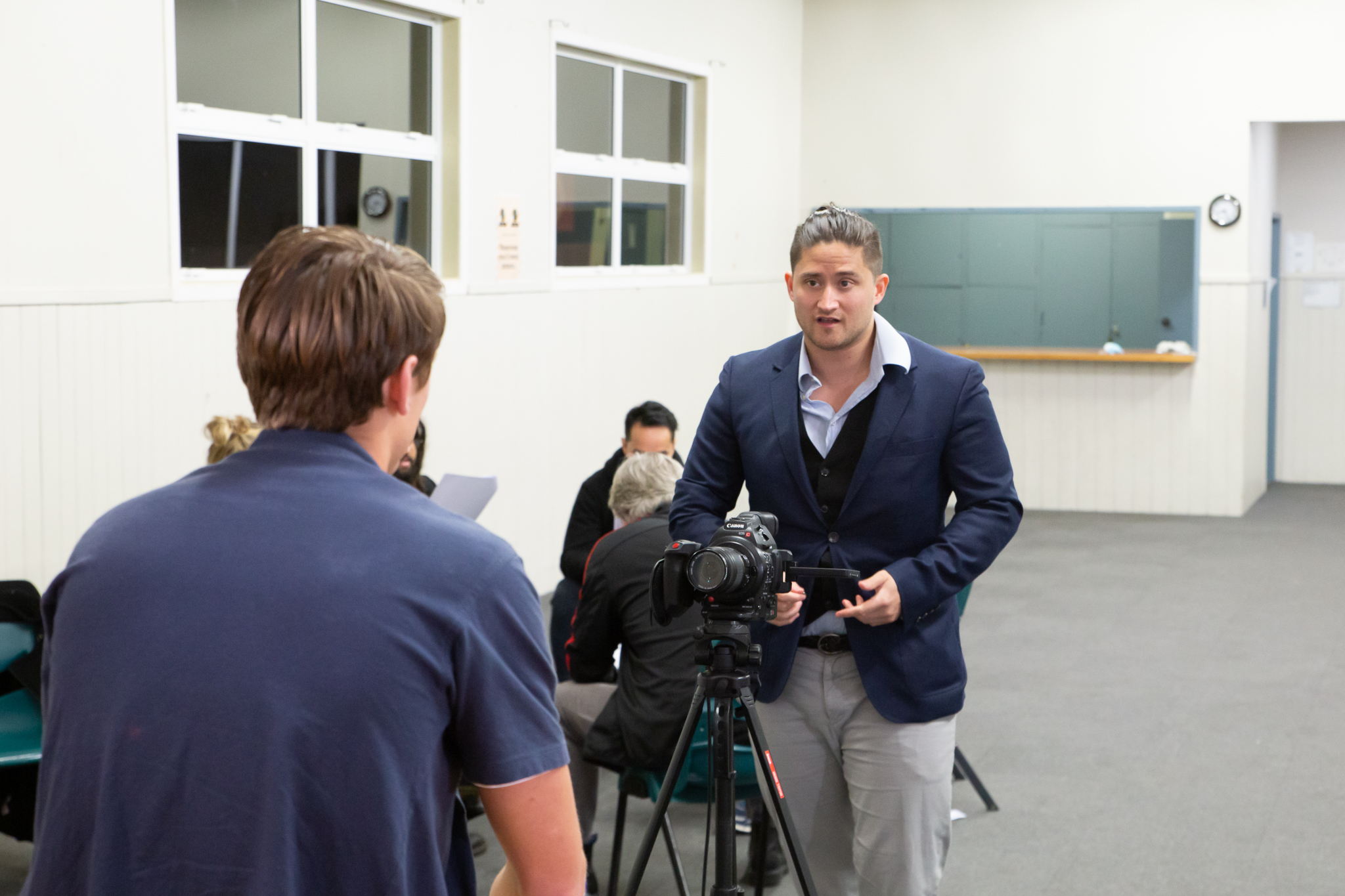
If you went away from the Bay of Plenty for a long time and then came back, what are the first three things you would do or visit?
I’d go up the Mount.
Walk along the beach.
Have an ice cream.
Looking back at your teen-age self: what one sentence describes that person?
Curious about life and hungry to contribute and make his mark in the universe.
If you had to eat the same meal every day, what would it be?
Pizza. (If you can keep changing the topping – perhaps this is a cheat answer).
What are you planning for 2021 that nobody knows about yet?
I’d like to compete in a running race. I like to set challenges for myself – to overcome things that I didn’t think were possible. I was never a fan of long-distance running, but because of COVID I started taking it up. Six months ago I suffered a knee injury and have just had an operation. I am keen to do something for myself and challenge myself – gives me a goal to work towards.
Who are your favourite or most admired figures from history?
As a student of Ancient History, I might pull out an Ancient figure. It might be easy to go for one of the big ones like Julius Caesar or August Caesar, the first Emperor of Rome. Or a quick answer would be Alexander the Great. One of the things I love about Alexander was that he was so driven and so curious. He wasn’t just a military man, but was trained by Aristotle, and had a thirst for knowledge, life and beyond life.
But for this answer, I’ll go with Hannibal the Carthaginian. I always loved his story. He was the underdog, Carthaginians fighting Romans. He was the general that did the impossible and the unimaginable for most people – he led an army with elephants over the alps and attacked Rome itself. In battle, he was undefeated. Driven by a desire to protect his home and his values. Courageous and imaginative, facing a great power and making them tremble. A leader whom, we are told, would lead from the front, and forsake comforts to sleep beside his men: values, disciple and self-sacrifice.
I also have to give a quick shout out to Bruce Lee, not just for his incredible martial arts abilities – but more for his philosophies. Born in the same city, I truly resonate with him. He paved the way for Asians to be celebrated artists globally and he was a philosopher. His belief of, “No way as way, no limitation as limitation,” is something I still uphold to this day. He believed in adaptation, in creativity and improvisation. Self-belief and overcoming adversity with handwork, discipline and always moving forward.
If the Prime Minister asked you to make up a new policy or law for New Zealand, what would it be?
If it was a law, it would probably be around helping the environment. For policy, I would put more emphasis on supporting the arts and making them viable career paths not just hobbies.
In one sentence, can you define art?
Art is the expression of your authentic self.

What is missing or lacking from your Bay of Plenty community or environment?
More infrastructure for the local artistic community. Viable pathways for them to have a lucrative living doing what they do. Be it more funding, more promotion, more critique, more local, more platforms internationally.
Name a few films that you consider profound, moving or extraordinary?
GATAKA – A great and underrated film. It is about a time where society is able to genetically manipulate DNA so that people can be born as close to “perfect” as possible – without things like heart disease and genetic imperfections. Ethan Hawke is born the “traditional way” and his brother is born “enhanced”. Of course, his brother eclipses him physically. But Ethan Hawke is determined to live his best life, and be an astronaut – something reserved for only the elite. It is a wonderful underdog story about a man overcoming his circumstances, even his DNA, to fulfil his dreams.
What was your first real job, second, third?
First one was working at a packaging factory. I actually got in trouble one day because I found it a little monotonous and wanted to challenge myself. So I sped up the conveyer belt to see how many lids I could do – I didn’t realise that this made others look bad, so got in trouble.
I worked behind the bar when I was at Edinburgh. I think this really helped me with social anxiety; naturally I am/was quite shy and introverted.
My first “real job” as a lead actor was playing Hercules in Central Park, New York. I’ll never forget that moment. It was surreal. I was so immersed in the scene, and then suddenly had a pause. I looked out and noticed how many people were sitting on the grass in Central Park watching me, hanging on my next word – that kind of connection with your audience – it’s unforgettable as an actor.
Where would you like to live, but have yet to?
I’m good right here.
What word of advice would you offer an aspiring creative person?
Create! Don’t just theorise or sit on your butt. Don’t be afraid to make mistakes as mistakes are part of the process. Take action! So many of us get stuck at the planning or wanting perfection. I believe in the work and being prolific. There may always be someone who comes along who is more talented, but hard work beats talent when talent gets lazy or doesn’t produce.
What’s the biggest problem about life in New Zealand? How you would solve it?
I had heard of “Tall Poppy Syndrome” but had never experienced it until I moved here last year. It is a wonderful thing to be humble, but it can hamper your growth and success and as a community – it definitely hampers the development of great talents. I admire artists who are bold and declare their greatness but then back it up. It is sometimes easier to be humble, to hope the work speaks for itself – but then you are relying on someone to champion you, to hope you get noticed. I think it’s more challenging to declare your intentions and go for it. As a country, we should support that not criticise it. There can be a balance between being bold and humble.
What is your dream of happiness?
To make films for a living and not worry about money. To make the films that I want to make – and if they are able to inspire or move just one person – I would be very happy.
In saying this, film is collaborative. To be the writer, director, actor, producer of a film that others are involved in. To see them proud of their handwork – that they’ve been paid for – that is priceless.
Anything else you’d like to tell us about yourself/your organisation?
I am keen to meet and collaborate with as many as the community as possible – however possible – let’s think outside the box and just create stuff together!
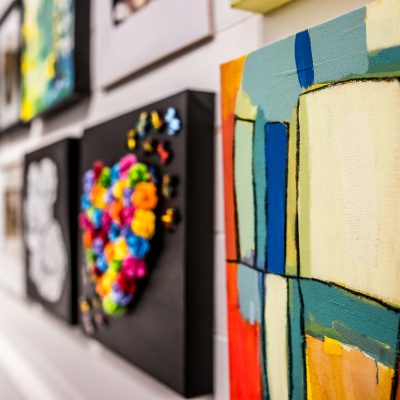
Creative Directory
Explore and connect with creative people, groups & spaces in Tauranga and Western BOP

